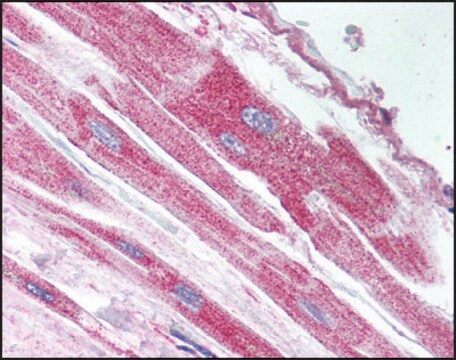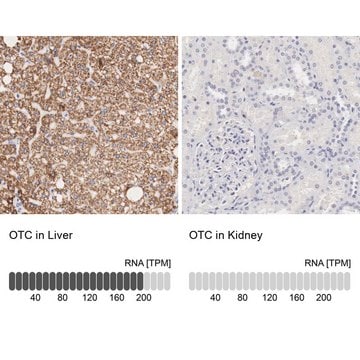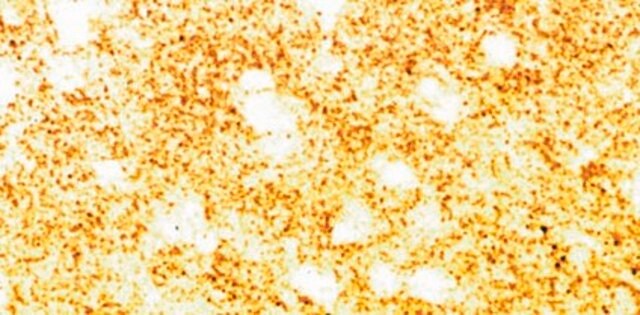SAB1407126
Anti-USP18 antibody produced in mouse
purified immunoglobulin, buffered aqueous solution
Sinônimo(s):
ISG43, UBP43
Selecione um tamanho
R$ 4.261,00
Previsão de entrega em28 de maio de 2025
Selecione um tamanho
About This Item
R$ 4.261,00
Previsão de entrega em28 de maio de 2025
Produtos recomendados
fonte biológica
mouse
conjugado
unconjugated
forma do anticorpo
purified immunoglobulin
tipo de produto de anticorpo
primary antibodies
clone
polyclonal
Formulário
buffered aqueous solution
peso molecular
antigen ~43 kDa
reatividade de espécies
human
técnica(s)
indirect immunofluorescence: suitable
western blot: 1 μg/mL
nº de adesão NCBI
nº de adesão UniProt
Condições de expedição
dry ice
temperatura de armazenamento
−20°C
modificação pós-traducional do alvo
unmodified
Informações sobre genes
human ... USP18(11274)
Descrição geral
Imunogênio
Sequence
MSKAFGLLRQICQSILAESSQSPADLEEKKEEDSNMKREQPRERPRAWDYPHGLVGLHNIGQTCCLNSLIQVFVMNVDFTRILKRITVPRGADEQRRSVPFQMLLLLEKMQDSRQKAVRPLELAYCLQKCNVPLFVQHDAAQLYLKLWNLIKDQITDVHLVERLQALYTIRVKDSLICVDCAMESSRNSSMLTLPLSLFDVDSKPLKTLEDALHCFFQPRELSSKSKCFCENCGKKTRGKQVLKLTHLPQTLTIHLMRFSIRNSQTRKICHSLYFPQSLDFSQILPMKRESCDAEEQSGGQYELFAVIAHVGMADSGHYCVYIRNAVDGKWFCFNDSNICLVSWEDIQCTYGNPNYHWQETAYLLVYMKMEC
Ações bioquímicas/fisiológicas
forma física
Exoneração de responsabilidade
Não está encontrando o produto certo?
Experimente o nosso Ferramenta de seleção de produtos.
Código de classe de armazenamento
10 - Combustible liquids
Classe de risco de água (WGK)
WGK 1
Ponto de fulgor (°F)
Not applicable
Ponto de fulgor (°C)
Not applicable
Escolha uma das versões mais recentes:
Certificados de análise (COA)
Não está vendo a versão correta?
Se precisar de uma versão específica, você pode procurar um certificado específico pelo número do lote ou da remessa.
Já possui este produto?
Encontre a documentação dos produtos que você adquiriu recentemente na biblioteca de documentos.
Active Filters
Nossa equipe de cientistas tem experiência em todas as áreas de pesquisa, incluindo Life Sciences, ciência de materiais, síntese química, cromatografia, química analítica e muitas outras.
Entre em contato com a assistência técnica








